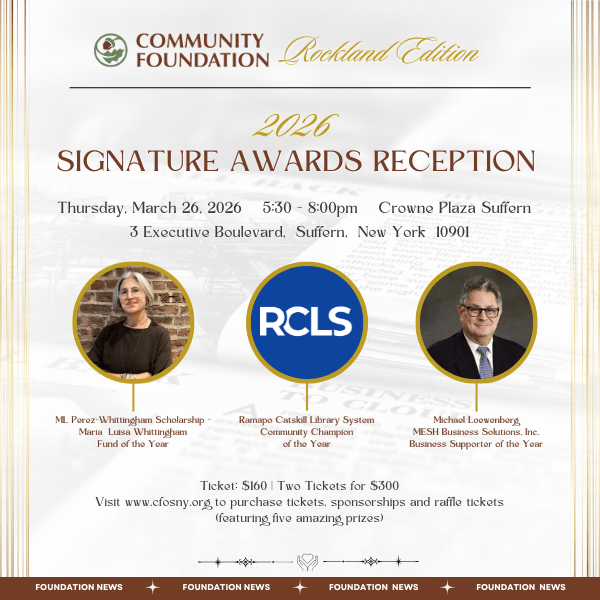|
RCBJ-Audible (Listen For Free)
|
Defense Says Claim Is Time-Barred; Plaintiffs Say Term Limit Law Was Never Legitimately Adopted
By Tina Traster
A judge who is handling the complex lawsuit over an effort to repeal term limits in Clarkstown signaled on Thursday that a significant question in the case boils down to whether the effort to overturn the law is time-barred by the statute of limitations.
Rockland County Supreme Court Justice Amy Puerto listened to oral arguments from attorney Robert Spolzino, who is representing Supervisor George Hoehmann and Councilman Don Franchino, who have sued the town to abolish the term limits law, and Clarkstown Deputy Attorney Kevin Conway, who is defending the town against the action.
“I was encouraged that the judge clearly put a lot of time and analysis, and encouraged by the questions she was asking.,” said Councilman Pat Carroll.
Daniel Szalkiewicz, of Daniel Szalkiewicz & Associates, the attorney who is representing Councilmen Frank Borelli and Pat Carroll as intervenors in the case, raised the argument that precipitated most of the discussion in court. The Manhattan attorney in his Feb. 7 filing maintains the statute of limitations to challenge the referendum provisions expired on Jan. 9, 2015.
Szalkiewicz argued that a challenge to the local law should have been brought within four months after the town passed it. In asking for the case to be dismissed, he wrote, “the Plaintiffs are attempting to bring a claim seven years after the statute of limitations has expired.” Szalkiewicz also argued the action would be barred by a longer six-year statute of limitations applicable to actions for declaratory relief. Declaratory relief cases ask the court to interpret or “declare” whether the plaintiffs are entitled to the relief they seek. Either way, he argues Hoehmann’s case is untimely and the court can’t give him the relief he seeks.
Whether the four-month or six-year statute of limitations applies hinges on whether the court finds the error in passage of the law to be “procedural” and subject to a four-month limitation or “substantive” and subject to the six-year limitation.
Spolzino argues that “a law that was never enacted can’t be the subject of a limitations defense.”
The plaintiffs, which include town resident Thomas Foley, allege the law enacted to limit town representatives to serve for eight years was never properly passed because the town failed to hold a referendum.
He went on to say, “This law required two acts: to be adopted by the board and approved by voters by referendum. This law was never enacted.” He said a law that was never actually enacted doesn’t have a statute of limitations to challenge it. The plaintiffs’ attorney also argued that the “continuing wrong” doctrine applies, meaning that the case stays ripe because the wrong accrues every day anew. In court, Spolzino said his clients are wronged because Hoehmann is unable to run for re-election.
Szalkiewicz pushed back, saying “There’s a law. It was submitted to the Attorney General’s office. The law is there. It shows the town adopted this law. It’s on the books.”
The Clarkstown term limit law was passed eight years ago by a unanimous vote of the town board. Hoehmann championed the law and voted affirmatively for term limits at the time.
When Puerto raised the question of why the term limits law is being challenged now, Spolzino said it would have been “speculative” for Hoehmann to have challenged the law earlier because only now is he facing the prospect of seeking re-election.
“This case never affected anyone until now,” said Spolzino. “This is the first time the law has been used to stop someone’s candidacy.”
The lawyers also disagreed about whether a town can pass a law that includes a supermajority for repeal without holding a public referendum.
Szalkiewicz said, “the state wants to be left out of these affairs. The state has no desire to dictate to town boards how to vote” on any issue.
Hoehmann has begun collecting signatures for his re-election even though the case has not been decided. He has telegraphed widely in public forums that he expects to prevail in the case. Town Clerk Justin Sweet, who was in court Thursday to observe the proceedings, told RCBJ he is running for Town Supervisor on the Democrat ticket. Sweet, who is town clerk, also times out by year end because of term limits.
The last date for filing petitions for the November election is April 6th.
“The judge asked pointed questions and it appeared the attorney for plaintiffs was dancing around the answers to justify why their claims didn’t coincide with case law,” said Carroll, who was present in court on Thursday. “I was encouraged that the judge clearly put a lot of time and analysis, and encouraged by the questions she was asking.”
The judge is expected to render a decision shortly.













